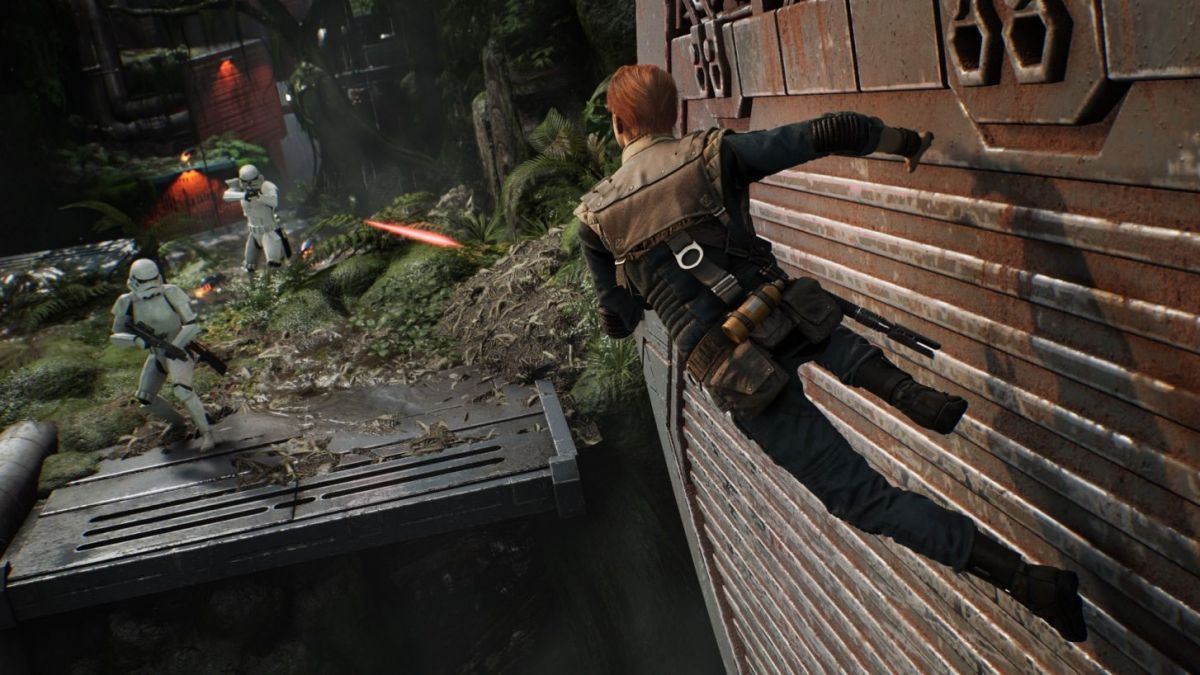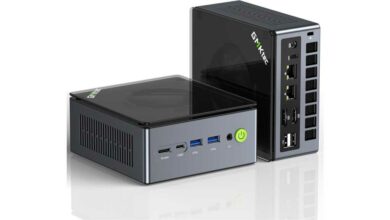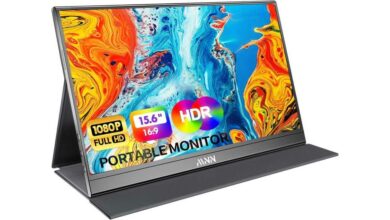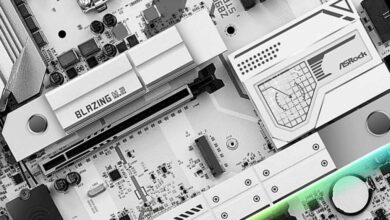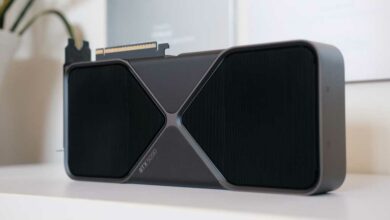
On this yearly penultimate episode of The Full Nerd, Brad Chacos, Alaina Yee, Adam Patrick Murray, and Will Smith got here able to brawl. Selecting the most effective PC {hardware} of the 12 months isn’t any simple job, particularly in a 12 months that proved momentous for the way forward for computing.
Heck, we couldn’t even agree on a shared of definition of what “best” means – it if you see it — however every participant introduced his or her personal picks for the most effective PC {hardware} and developments of 2023 earlier than all of us hashed out a single winner in every class. Generally it was painful. It was at all times enjoyable. However contemplating how lengthy it took to choose winners, it’s in all probability finest that we streamlined classes a bit this 12 months.
Notice that this checklist is separate from PCWorld’s wider finest PC {hardware} and software program of 2024 and finest make money working from home tech of 2024; The Nerdies (as properly name ‘em) are the opinion of our Full Nerd crew only. Check out the full episode below and a brief description of winners afterwards if you want the results without all of The Full Nerd gang’s livid, passionate debate.
If you wish to see podcasts like this in actual time (dwell viewers broke some ties in our votes right here!), be sure you subscribe to our Full Nerd channel on YouTube – we separated it from PCWorld’s predominant YouTube channel a pair months again. Child’s all grown up!
The classes we topped this 12 months are as follows:
- Finest CPU
- Finest GPU
- Finest PC accent
- Finest development
- Worst development
Finest CPU: AMD Ryzen 7 9800X3D
Adam Patrick Murray / Foundry
In a 12 months filled with disappointing CPU launches, one diamond shined. The Ryzen 7 9800X3D managed to rise above a messy wider Ryzen 9000 launch to ship clear best-in-class gaming efficiency that completely smashes Intel’s rival Core Extremely Collection 2 chips, which took a irritating step backwards in uncooked oomph this technology.
Even higher than that, the Ryzen 7 9800X3D’s reconfigured second-gen V-Cache expertise (the particular sauce within the acclaimed gaming line) fully eradicated drawbacks present in earlier X3D processors. You don’t quit any clock velocity with the 9800X3D, so inventive apps not undergo from a efficiency hit, and you may even overclock it – a primary for the sequence. Bravo, AMD.
Intel deserves a separate shout-out for the all-around attraction of its ultra-long-lasting Lunar Lake laptop computer chips, however that is Full Nerd – so AMD’s gaming titan will get our nod.
Finest GPU: Intel Arc B580
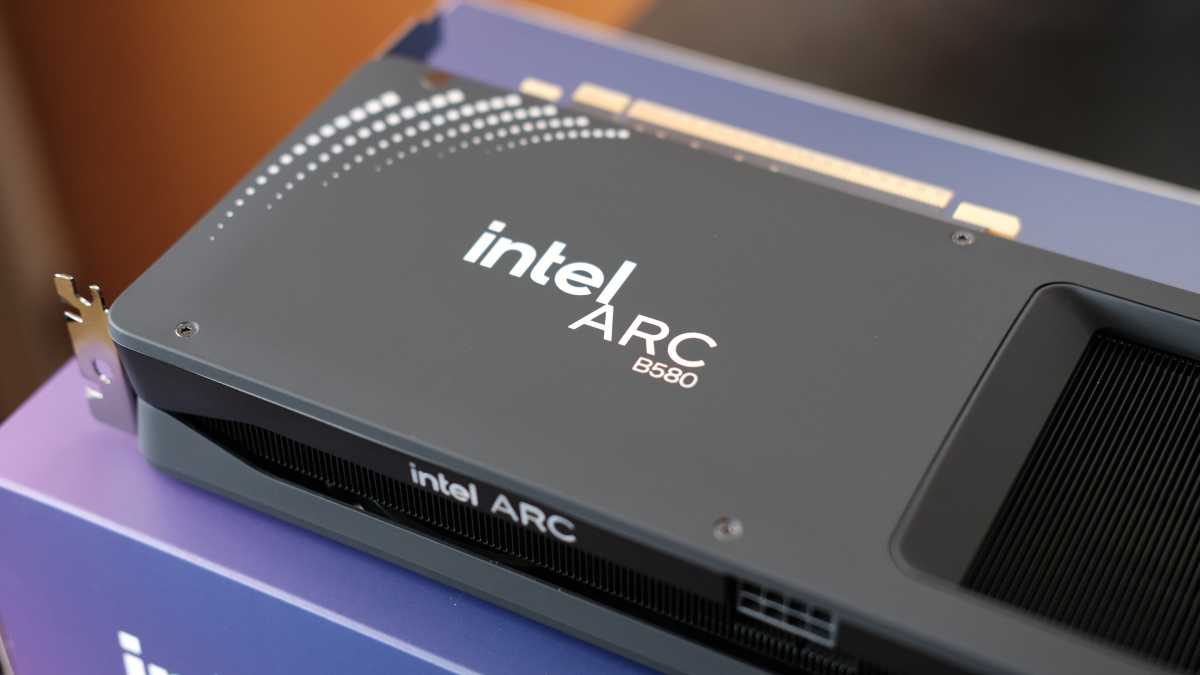
Adam Patrick Murray / Foundry
Intel’s debut Arc A-series GPUs provided worth, however the driver scenario for Chipzilla’s first-gen graphics playing cards left loads to be desired. Fairly than shrug, Intel’s engineers rolled up their sleeves and unleashed new drivers at a blistering tempo in current reminiscence, largely eliminating bugs, efficiency quirks, and different show-stopping worries via sheer exhausting work.
It helped the first-gen Arcs, duh, however the software program enhancements actually shine within the Arc B580 – the graphics card debuting Intel’s overhauled Xe2 next-gen structure. That is the graphics card we’ve been begging for for the reason that pandemic: Not solely does the $249 Arc B580 supply trendy ray tracing and options, it additionally contains an ample 12GB of reminiscence connected to a large bus, making it a really nice graphics card for 1080p and 1440p gaming alike, in a decade the place Nvidia and AMD have designed their mainstream GPUs to work finest for 1080p alone.
We haven’t seen a $250 graphics card this compelling this decade – you’d must go all the best way again to the halcyon days of the GTX 1060 and Radeon RX 480 to discover a price range GPU with a price proposition this robust. In a weak 12 months for graphics playing cards, Intel’s surprisingly nice Arc B580 stands out.
Finest accent: Stream Deck ecosystem
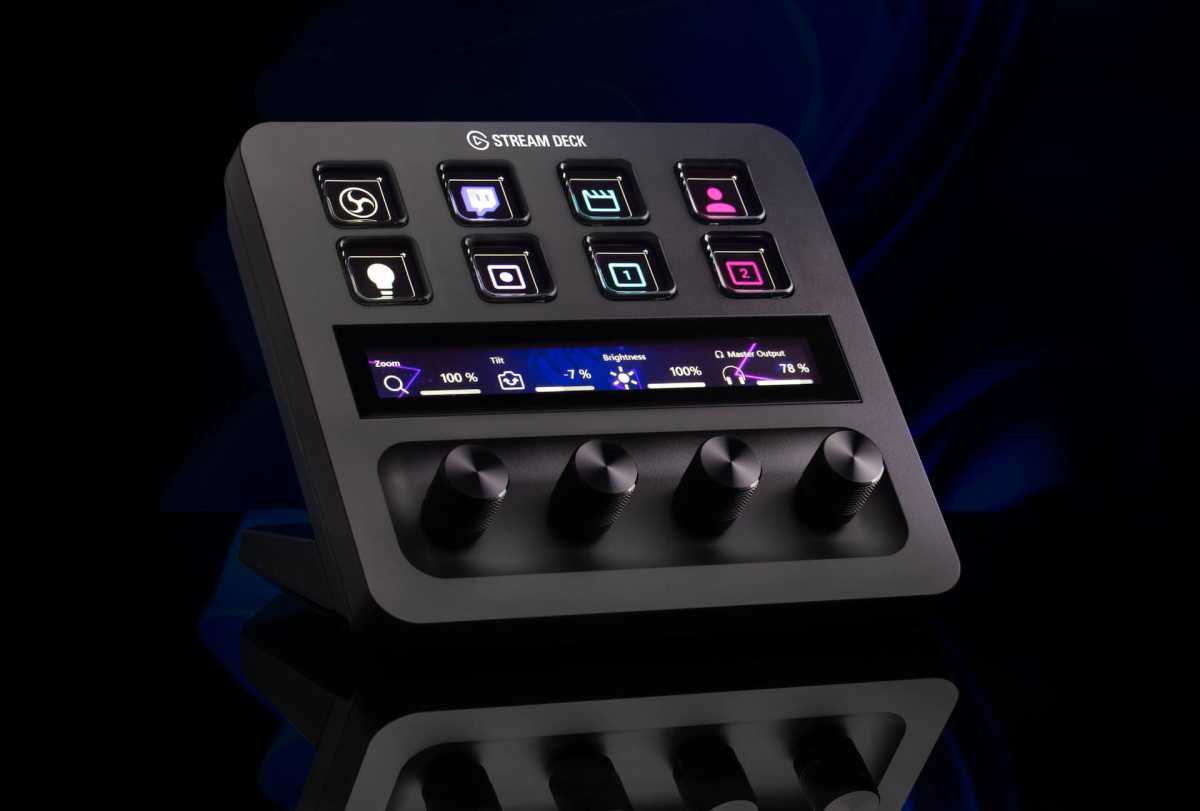
Elgato/Corsair
No, not the Steam Deck – Elgato’s Stream Deck, which has been a mainstay for content material creators since lengthy earlier than Valve’s handheld debuted. However it’s Elgato’s continued assist of your complete Deck ecosystem that earned our admiration this 12 months.
Yow will discover (or create) customized Stream Deck setups for the whole lot nowadays, from Photoshop to OBS to even controlling the good lights in your house. And Elgato has stored the {hardware} related with expansions (like an XLR add-on and teleprompter) and new type elements (need a mini- or maxi-sized Stream Deck? They’ve received that!) over time.
However “the real reason it’s good is the community has embraced it, and there’s a buttload of plugins now, for almost everything you can imagine,” as Will so eloquently put it. And the Stream Deck will intelligently swap between your configurations relying on the software program you’re actively utilizing. And sure, it’s helpful for lots greater than streaming nowadays – I’d say it may very well be helpful to anyone who makes use of their PC for critical work or critical play.
To cite Will as soon as once more “I can’t overstate how indispensable it is.”
Finest development: CPU and GPU competitors
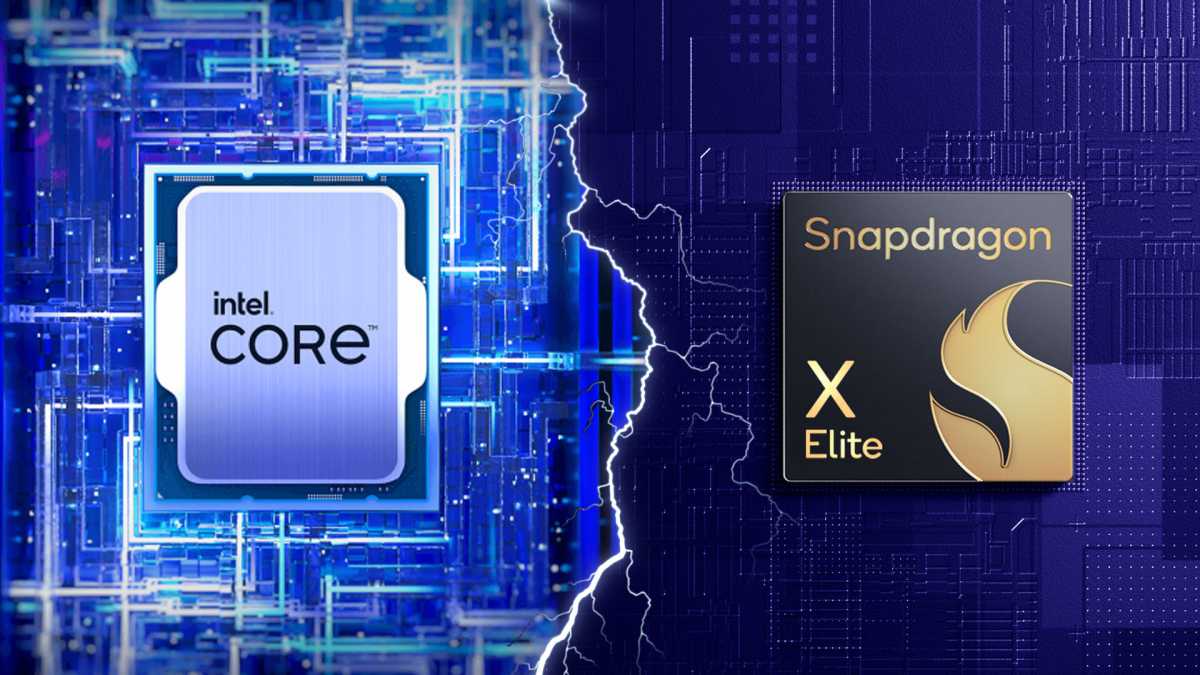
Intel/Qualcomm
This was a good race between PCs and laptops lastly embracing effectivity, and the rise of third contenders within the CPU and GPU house. Ultimately, nevertheless, we’ve got to cheer it from the rooftops but once more: Yay competitors!
After years of poor software program efficiency, Qualcomm lastly emerged as a real risk with its Snapdragon X Elite chips, which introduced unimaginable battery life and full-fledged to laptops whereas serving because the vanguard for Microsoft’s Copilot+ PC initiative. They nonetheless have niggling points with some legacy desktop packages, however the most-used apps largely have embraced Arm and the mix of multi-day endurance and a strong NPU adjustments what’s attainable in future laptops – even when Intel’s Lunar Lake managed to strike again shortly after.
On the GPU facet, Intel’s second-gen Arc B580 delivered the primary worthy price range graphics card of the last decade. Nvidia and AMD merely weren’t making mainstream GPUs this succesful for years – so Intel focused this phase for its debut second-gen card, and PC players on a price range lastly have a compelling choice obtainable for underneath $400+.
You like to see it. Yay competitors!
Worst development: The enshittification of the whole lot

Grownup Swim
We strive to not cuss too typically right here at PCWorld, however the time period ‘enshittification’ has been making the rounds in recent times due to Corey Doctorow and Ed Zitron. It completely sums up our frustration with trendy software program and companies. It’s solely getting worse within the AI period as tech corporations rush to justify spending billions upon billions to make AI a factor.
AI-generated Google searches instructed us to place glue in pizza. Fb posts are full of pretend feedback and horrible summaries from Meta AI brokers. Microsoft retains filling up Home windows with new adverts and new bugs, over and over and over, whereas pushing infinite Copilot options on Home windows and enterprise customers alike. Twitter simply… man, it’s positively X now. Each new PC crams in AI options of doubtful high quality. ChatGPT nonetheless can’t rely the variety of Rs in ‘strawberry’ persistently. Apple Intelligence spits out notification summaries so unhealthy (learn: typically false) it’s being complained about by the BBC. All over the place you flip: AI AI AI AI AI AI AI AI AI AI AI AI AI AI AI AI AI AI AI AI AI AI.
Silicon Valley’s ‘growth mindset’ is in full swing now and it sucks. Hopefully the main focus returns to, , really offering merchandise that prospects get pleasure from in 2025 slightly than treating folks because the merchandise themselves – however don’t get your hopes up.



